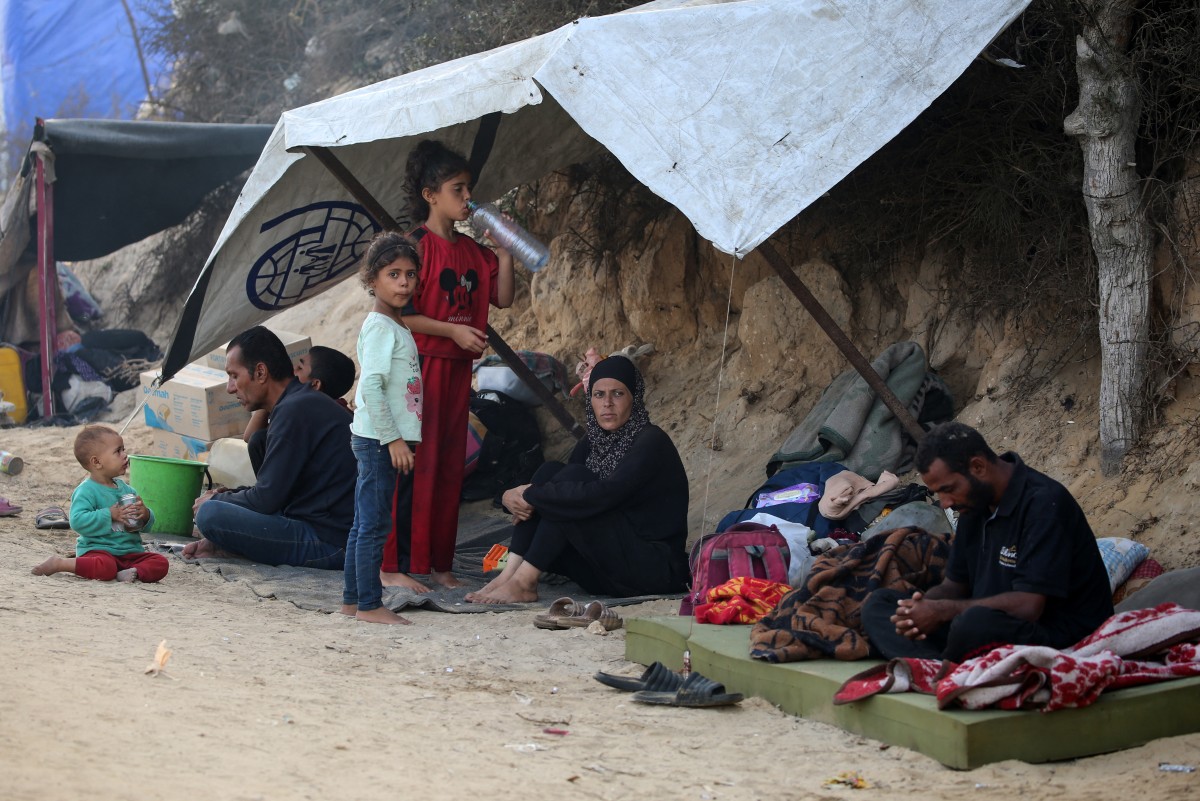Tel Aviv, Israel – The United States has unveiled a sweeping 21-point framework aimed at ending the war in Gaza and laying the groundwork for a future Palestinian state. The plan, shared with a select group of Arab and Muslim nations on the sidelines of the United Nations General Assembly, calls for a phased Israeli withdrawal from Gaza, disarmament of Hamas, and an international push to rebuild the war-torn territory.
The proposal marks a significant shift in Washington’s approach. Earlier this year, President Donald Trump had floated the idea of relocating Gaza’s population permanently, and his administration had resisted any reference to Palestinian statehood. The new framework, however, calls for Gazans to remain in the Strip and outlines a conditional pathway toward eventual statehood.
While the plan offers several concessions to Palestinians, it also carries provisions favorable to Israel — including Hamas’ demilitarisation and programs to “de-radicalise” Gaza’s population.
Israeli Prime Minister Benjamin Netanyahu has dismissed the two-state solution, telling the UN General Assembly on Friday: “Giving the Palestinians a state one mile from Jerusalem after October 7th is like giving Al-Qaeda a state one mile from New York City after September 11th. This is sheer madness. It’s insane, and we won’t do it.”
Yet Trump struck an optimistic note, saying “intense negotiations” were underway. His Middle East envoy, Steve Witkoff, described the talks with Arab leaders as “productive,” expressing confidence that progress could be announced soon.
Below are the key elements of the US proposal:
-
Gaza will be converted into a demilitarised, terror-free zone that poses no threat to its neighbours, with redevelopment programs to improve daily life.
-
If both parties accept, hostilities will stop immediately. Israel will suspend operations and begin a phased withdrawal.
-
Within 48 hours of Israel’s acceptance, all hostages, both living and deceased, will be returned.
-
After the hostages’ return, Israel will release several hundred Palestinian prisoners serving life terms, more than 1,000 detainees from the current war, and the remains of hundreds of Palestinians.
-
Hamas fighters who renounce violence will receive amnesty; those unwilling to do so will be allowed safe passage to countries willing to accept them.
-
Humanitarian aid will resume at no less than 600 trucks daily, matching January’s agreement, alongside reconstruction and rubble-clearing.
-
Aid distribution will be managed solely by neutral international agencies such as the UN and the Red Crescent, with no interference from either side.
-
Gaza’s governance will be placed under an interim administration of Palestinian technocrats.
-
An international committee, led by the US with Arab and European partners, will supervise funding and oversee Gaza until reforms in the Palestinian Authority are complete.
-
A regional economic plan will be launched to attract investment, create jobs, and accelerate Gaza’s recovery.
-
A special economic zone will be created, with regional states offering tariff reductions and improved access.
-
No resident will be forced to leave Gaza. Those who depart voluntarily will retain the right of return.
-
Hamas will be excluded from governance. All tunnels and offensive infrastructure will be dismantled, with new leadership pledging peaceful coexistence.
-
Regional powers will provide security guarantees to ensure compliance, safeguarding both Israel and Gaza.
-
A temporary international stabilisation force, led by the US and partners, will be deployed to oversee security.
-
This force will also train a Palestinian police service to take over long-term internal security.
-
Israel will neither annex nor permanently occupy Gaza, handing over control gradually as stabilisation units secure the territory.
-
If Hamas refuses or delays, the plan will be implemented in areas free of militant activity, with Israel transferring control to international forces in phases.
-
Israel will refrain from targeting Qatar, while the US and allies acknowledge Doha’s mediating role.
-
A structured de-radicalisation program, including interfaith initiatives, will be launched to foster new narratives between Israelis and Gazans.
-
Once reconstruction advances and the Palestinian Authority’s reforms are complete, conditions may support a credible path to Palestinian statehood, though no timeline is defined.
-
The US will facilitate dialogue between Israel and Palestinians to reach a long-term political settlement








